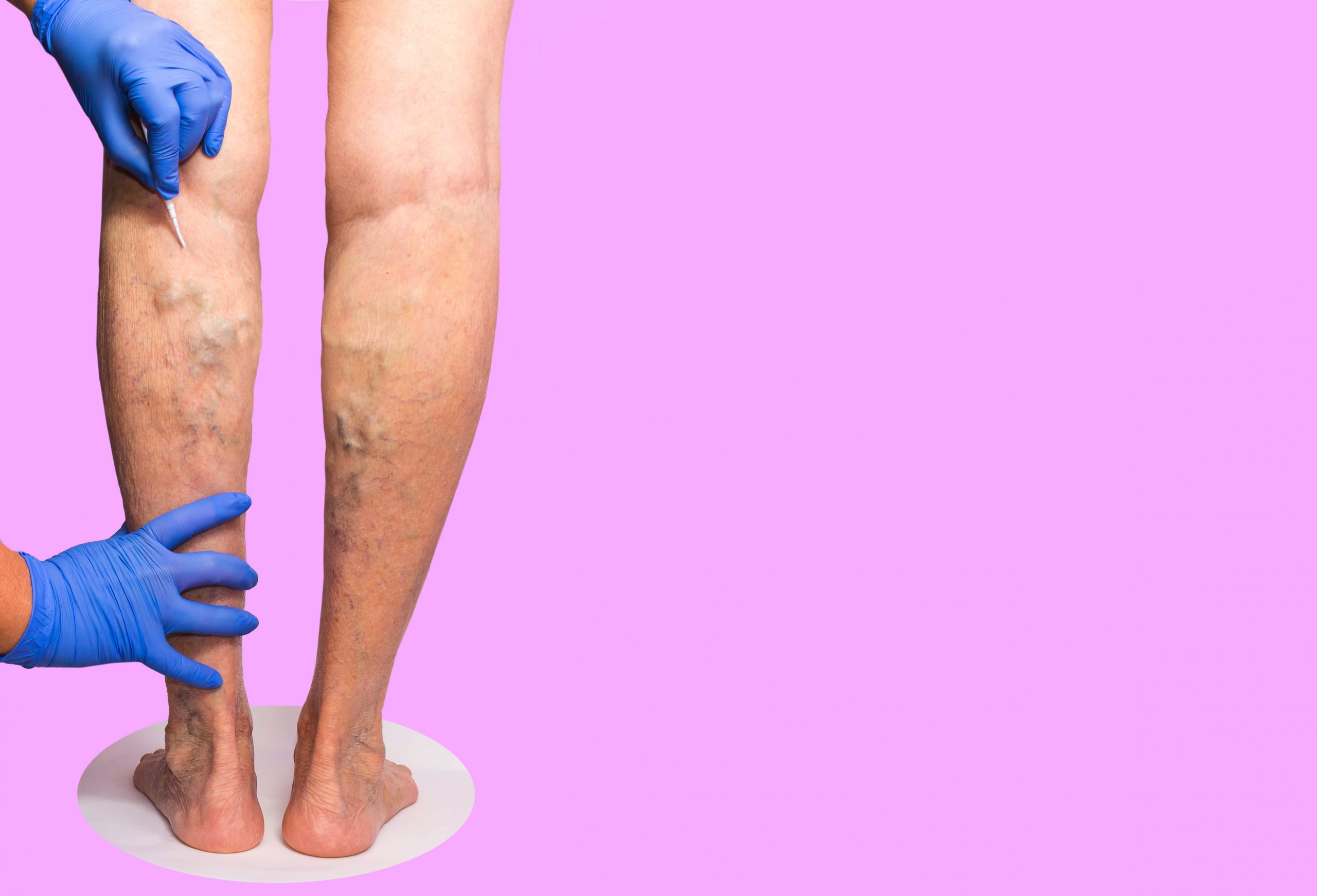Who Are Vein Treatment Doctors, and Why Should You See One?
Vein-related issues can often go unnoticed until they start causing discomfort or visible changes to your body. If you’ve ever wondered about vein treatment doctors and why their expertise might be essential for your health, this guide will answer all your questions. We’ll explore their role, the procedures they offer, and why consulting a specialist for your vein health is vital.
What Do Vein Treatment Doctors Specialize In?
Vein treatment doctors, often referred to as vein specialists, are medical professionals who diagnose and treat conditions related to the veins in your body. Their expertise includes addressing issues such as varicose veins, spider veins, deep vein thrombosis, and chronic venous insufficiency.
These doctors have extensive training in vascular medicine and may come from specialties such as dermatology, interventional radiology, or general surgery. By focusing on vein health, they ensure that blood flow is optimized and that any underlying issues are treated effectively.
Why Are Vein Treatment Doctors Important?
Vein health plays a crucial role in your overall well-being. Veins are responsible for returning blood to the heart, and any obstruction or malfunction in this process can lead to discomfort, swelling, or even more severe complications. A vein treatment doctor identifies these problems early and offers solutions tailored to your needs.
For example, if you’re experiencing symptoms like aching legs, visible bulging veins, or leg ulcers, these could signal vein disease. Without timely intervention, such conditions can escalate into severe health concerns, including blood clots and infections. Consulting a vein treatment doctor ensures proper diagnosis and treatment, improving your quality of life.
What Are the Common Procedures Performed by Vein Treatment Doctors?
Vein treatment doctors offer a wide range of procedures, each designed to address specific vein-related issues. Here are some common treatments they perform:
- Sclerotherapy
This minimally invasive procedure involves injecting a solution into affected veins, causing them to collapse and eventually fade. It’s commonly used to treat spider veins and small varicose veins. - Endovenous Laser Therapy (EVLT)
EVLT uses laser energy to seal off problematic veins. This technique is highly effective for treating larger varicose veins and is performed under local anesthesia. - Radiofrequency Ablation (RFA)
Similar to EVLT, RFA uses heat generated by radiofrequency waves to close damaged veins. It’s a quick and effective method with minimal downtime. - Ambulatory Phlebectomy
This procedure involves removing small varicose veins through tiny incisions. It’s often used for veins that are too large for sclerotherapy but not suitable for laser treatments. - Compression Therapy
In some cases, vein treatment doctors recommend wearing compression stockings to improve blood flow and alleviate symptoms. While this is not a surgical procedure, it is an essential part of managing vein conditions.
When Should You See a Vein Treatment Doctor?
Many people delay seeking medical attention for vein-related issues, assuming they are purely cosmetic. However, this misconception can lead to complications. You should see a vein treatment doctor if you experience any of the following:
- Persistent leg pain or cramping, especially after standing or sitting for extended periods.
- Swelling in the legs or ankles.
- Visible varicose or spider veins.
- Skin discoloration or ulcers around the ankles.
- A feeling of heaviness or fatigue in the legs.
Early diagnosis and treatment can prevent further progression of vein disease and reduce the risk of complications.
What Can You Expect During a Visit to a Vein Treatment Doctor?
Your first visit to a vein treatment doctor typically includes a comprehensive evaluation. The doctor will take your medical history, discuss your symptoms, and perform a physical examination. If necessary, they may use diagnostic imaging, such as ultrasound, to assess the condition of your veins.
Once a diagnosis is made, the doctor will explain your treatment options and develop a personalized plan. Most procedures are outpatient, meaning you can return home the same day. Recovery times are generally short, and many treatments provide immediate relief from symptoms.
How Do Vein Treatment Doctors Ensure Long-Term Results?
Vein treatment doctors don’t just focus on immediate relief; they also emphasize long-term results. After treating your vein condition, they may recommend lifestyle changes to maintain optimal vein health. These include:
- Exercise: Regular physical activity improves circulation and prevents blood from pooling in the veins.
- Healthy Diet: A diet rich in fruits, vegetables, and whole grains supports vein health and helps maintain a healthy weight.
- Hydration: Staying hydrated keeps your blood thin and promotes smooth circulation.
- Avoid Prolonged Sitting or Standing: If your job requires extended periods of sitting or standing, take breaks to move around and stretch your legs.
- Wearing Compression Stockings: These can prevent the recurrence of varicose and spider veins.
By following these recommendations, you can significantly reduce the likelihood of future vein problems.
Are Vein Treatment Procedures Painful?
One of the most common concerns people have about visiting a vein treatment doctor is the fear of pain. Fortunately, most procedures are minimally invasive and cause little to no discomfort. Techniques like sclerotherapy, EVLT, and RFA are performed under local anesthesia, ensuring a comfortable experience.
Patients often report feeling slight pressure or a mild sensation during treatment, but these are temporary. Recovery is typically smooth, and many people can resume normal activities within a day or two.
What Are the Benefits of Seeing a Vein Treatment Doctor?
Seeking care from a vein treatment doctor offers numerous benefits:
- Improved Comfort: Treatments alleviate pain, swelling, and other symptoms associated with vein conditions.
- Enhanced Appearance: Procedures effectively reduce or eliminate visible veins, boosting your confidence.
- Better Mobility: Treating vein issues can restore your ability to move freely without discomfort.
- Prevention of Complications: Early intervention reduces the risk of severe complications like blood clots and infections.
How to Choose the Right Vein Treatment Doctor?
Selecting the right vein treatment doctor is crucial for successful outcomes. Here are some tips to help you make an informed decision:
- Check Credentials: Ensure the doctor is board-certified and has specialized training in vein treatment.
- Read Reviews: Patient reviews can provide insights into the doctor’s expertise and bedside manner.
- Ask About Technology: Modern treatments rely on advanced technology, so choose a doctor who uses up-to-date equipment.
- Schedule a Consultation: Meet the doctor to discuss your concerns and evaluate their approach to treatment.
By doing your research, you can find a vein treatment doctor who meets your needs and provides exceptional care.
What is a vein doctor called?
What is a vein doctor called? : A vein doctor is commonly referred to as a vein specialist or a phlebologist. These medical professionals focus on diagnosing and treating conditions related to the veins, such as varicose veins, spider veins, deep vein thrombosis, and chronic venous insufficiency. While “vein specialist” is a general term, the specific title or expertise may vary depending on their medical training and subspecialty.
Vein specialists often come from fields like vascular surgery, dermatology, interventional radiology, or general medicine. A phlebologist, in particular, is a doctor who has received specialized training in vein care and is often certified by organizations like the American College of Phlebology.
These doctors use advanced diagnostic tools, such as ultrasound, to evaluate the health of veins and determine the best course of treatment. Treatments offered by vein specialists include minimally invasive procedures like sclerotherapy, laser therapy, and radiofrequency ablation, as well as conservative approaches like compression therapy.
It’s essential to consult a vein specialist if you experience symptoms like leg pain, swelling, or visible veins. These issues could indicate underlying vein disease, which can lead to complications if untreated. By addressing vein-related problems early, a vein doctor ensures better vascular health and improved quality of life.
Conclusion
Vein treatment doctors play a vital role in maintaining vascular health. Whether you’re dealing with varicose veins, spider veins, or more severe conditions, their expertise ensures effective and long-lasting solutions. Don’t ignore the signs of vein disease—consulting a vein treatment doctor can improve your comfort, mobility, and overall well-being. With modern, minimally invasive procedures, achieving healthier veins is easier than ever. Take the first step today and schedule a consultation with a qualified vein treatment doctor.














Post Comment